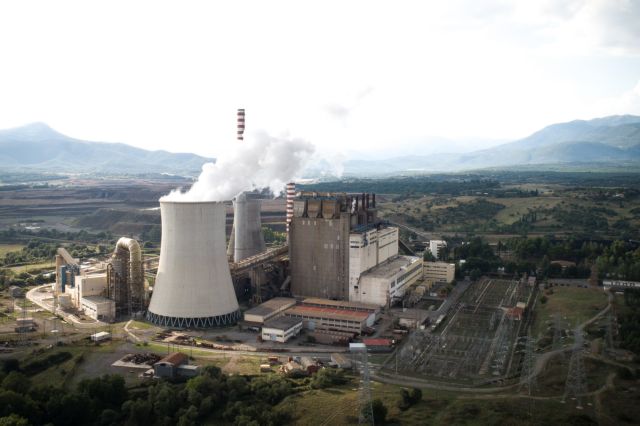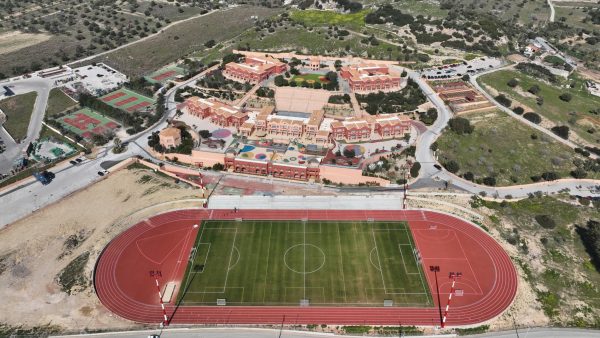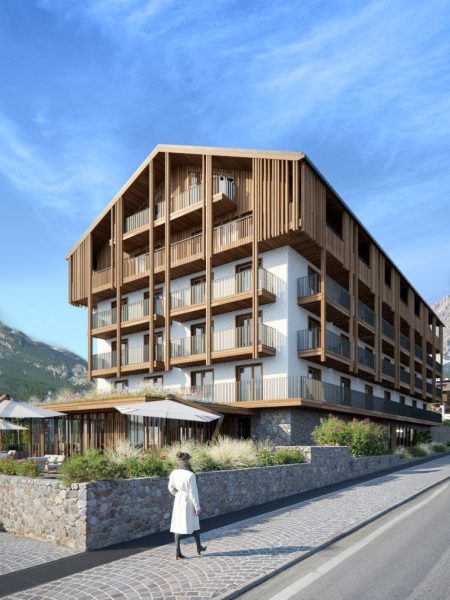
There is still a long way to go for the restoration and development of the ground in Western Macedonia and Megalopolis, which are “liberated” due to the abandonment of lignite as a source of power. This is 2/3 of the 247,000 acres in Western Macedonia and Megalopolis, which today belong to the PPC and will be transferred to a Special Purpose Vehicle – SPV that will be established by the State. However, for this to happen, a special regulation must first be forwarded for a vote in the Parliament, which will determine, among other things, the statute of the SPV, ie it will describe its purpose, its organization, the way it operates, etc.
The plan envisages that, out of the total area currently maintained by the PPC in the two areas that are used as lignite mines in the country, in which the company’s mines and lignite power plants have been operating for decades, 164,000 acres will be separated from its property base and will be given to the SPV, with virtually no consideration, offsetting the value of the specific lands with the cost of restoration. However, neither the secession of the branch has been done by PPC, nor has it been determined by which mechanism the transfer will take place.
It should be noted that the SPV – for the management and exploitation of the real estate that will be assigned to it – will enter into a partnership with an individual, who will be selected through tender procedures and will undertake the implementation of infrastructure projects, their operation, while is also responsible for the selection of companies that will be hosted in the lignite areas.
In addition to the establishment of the SPV, in order to proceed with the planning of the projects that will be installed in the lignite areas, the Special Urban Plans (SUPs) must be completed, which will determine the standard of spatial organization and development, as well as the basic dimensions relating to the boundaries of urban units, land uses, building conditions and restrictions and other urban interventions. However, in order for the PPC to announce the tender for the studies of the EPC, which is expected for months, it had to be preceded by the issuance of a Joint Ministerial Decision that would set the relevant specifications, which was finally signed a few days ago by the Deputy Minister of Environment. and Energy Mr. Nikos Tagaras and is now on the road to the National Printing Office.
At the same time, the program contract that will be concluded with the State for the conduct of the tenders for the SUP was recently passed by the Board of Directors of the PPC. After the studies are completed – which will take about two years to – the Presidential Decrees (PD) of the urban plans will be drafted and after passing through the judgment of the Council of State (CoS) and if necessary, the corrections will be made, so as to proceed with the establishment of businesses and actions.
But even if the studies “run” with fast track procedures – as was done with the EPS for the case of Mati in Attica which was completed in about 10 months – in the best case the PDs will not have been signed before next autumn. Provided, of course, that in parallel with the studies for the EPS, the Strategic Environmental Assessment will be drafted, which is necessary, based on the relevant provisions of the law. In any case, in order to complete the Plan for the Fair Transition of the two energy regions of the country to a climate-neutral economy, the restoration of the soil must have preceded.
As for the 1/3 of the lands that will remain in the ownership of PPC, after they are restored, the investments of the Renewable Energy Sources (RES) projects of the company will be installed, which have already been launched, while for the remaining areas of approximately 8,300 hectares resources will be utilized from the € 242 million committed to the Recovery Fund.
Latest News

Fitch Ratings Upgrades the Four Greek Systemic Banks
NBG’s upgrade reflects the bank’s ongoing improvements in its credit profile, Fitch notes in its report, including strong profitability, a reduction in non-performing exposures (NPEs), and lower credit losses

Trump to Announce Sweeping New Tariffs Wednesday, Global Retaliation Expected
With Trump's announcement just hours away, markets, businesses, and foreign governments are bracing for the fallout of one of the most aggressive shifts in U.S. trade policy in decades.

Inflation in Greece at 3.1% in March, Eurostat Reports
Average inflation in the eurozone settled at 2.2%, compared to 2.3% in February

Greece’s Unemployment Rate Drops to 8.6% in February
Despite the overall decline, unemployment remains higher among women and young people.

Jerry Kalogiratos Highlights Key Role of Energy Transition and Data Demand in LNG Outlook
Energy transition and the prospects of LNG were discussed at Capital Link’s 19th Annual International Maritime Forum, during a panel discussion with Jerry Kalogiratos (Capital Clean Energy Carriers Corp.)

Santorini Safe and Ready for a Dynamic Tourism Season
Authenticity, cultural heritage, and genuine experiences at the center of Santorini's new promotional campaign

Electricity Bills: Greece Announces Reduced Tariffs Schedule
Greece will now offer lower electricity rates between 11:00-15:00 and 02:00-04:00

Chevron Confirms Eyeing Natural Gas Exploration South of Crete
Chevron recently declared its intent to explore a third area, south of the Peloponnese.

Evangelos Marinakis: A time of change from which shipping can benefit
Speaking at the 19th Annual Capital Link International Shipping Forum Evangelos Marinakis stressed the challenges that shipping faces today

Retail Trade in Greece Up 2.5% in December 2024: ELSTAT
In January 2025, the General Turnover Index recorded a 2.5% increase compared to January 2024. Compared to December 2024, it recorded a significant decline of 18.4%












![Τουρκία: Μεγάλες βλέψεις για παραγωγή ηλεκτρικών οχημάτων [γράφημα]](https://www.ot.gr/wp-content/uploads/2025/03/ot_turkish_autos-90x90.png)










![ΕΛΣΤΑΤ: Αυξήθηκε η οικοδομική δραστηριότητα κατά 15,6% το Δεκέμβριο [πίνακες]](https://www.ot.gr/wp-content/uploads/2025/03/DSC9655-2-1024x569-1-90x90.jpg)

















 Αριθμός Πιστοποίησης
Αριθμός Πιστοποίησης